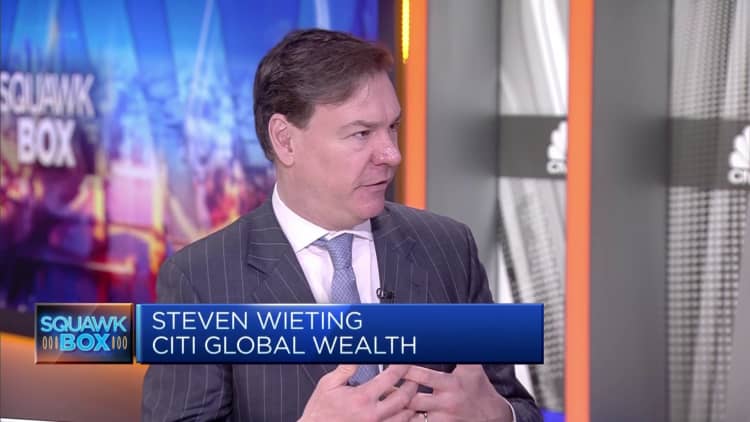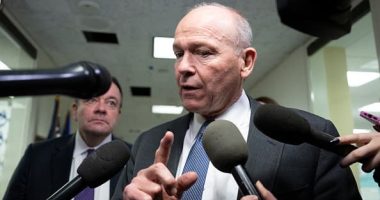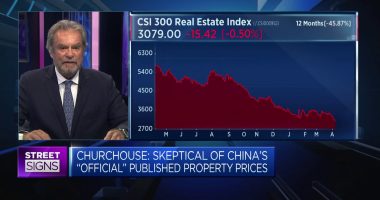Jim Dyson | Getty Images News | Getty Images
The global economy does not need a “collapse” in order to bring inflation back to target and return to sustainable growth, according to Steven Wieting, chief investment strategist and chief economist at Citi Global Wealth.
Major economies have proven surprisingly resilient to sharp interest rate increases from central banks over the last two years. This has been particularly evident in the U.S., with recession thus far avoided and the labor market remaining robust.
Talk has now turned to rate cuts as inflation remains on a downward trajectory toward central banks’ targets, while growth has slowed.
Wieting told CNBC’s “Squawk Box Europe” on Monday that he is optimistic the global economy does not need an “economic collapse” to rein in inflation.
“We had one massive shock — one pandemic, one collapse. We didn’t need two recessions to ultimately cure our inflation problem,” he said.
“It’s holding down parts of our economy now — manufacturing and trade declines are happening around the world — but these are likely to bottom within the year.”

U.S. headline inflation came in at an annual 3.4% year-on-year in December, remaining above the Federal Reserve’s 2% target but down considerably from a peak of 9.1% in June 2022.
Investors will be closely watching Friday’s personal consumption expenditure (PCE) inflation figure, the Fed’s preferred metric, for further clues as to when the central bank will begin cutting rates.
Meanwhile, a preliminary estimate of fourth-quarter GDP is scheduled for Thursday, with the economy expected to have grown by 1.7%, its lowest rate since the 0.6% decline in the second quarter of 2022.
“This period of slower global growth and slowing employment growth in the United States we think can pass and lead to a healthier growth period if we take a look particularly at the next year and beyond, and that’s this year’s business for investors,” Wieting said.
He highlighted that while there is excess that needs to be worked out of the economy, this was not the result of a “true overheating” or prolonged “boom,” but instead of excess government fiscal stimulus related to the pandemic recovery that wasn’t going to be repeated.
“If you take a look at money supply in the United States, it declined 4% over the past year. Take a look at the 1970s, it was almost 10% growth for the entire decade, important prices surging 14% every single year — that’s … sustained inflation,” Wieting said.
“This story with just all of this government spending coming and going — upheaval in supply and demand, consumer spending going up or down 30% between goods and services, during the pandemic period — that’s not the environment we’re in any longer.”
Read More: World News | Entertainment News | Celeb News
CNBC









